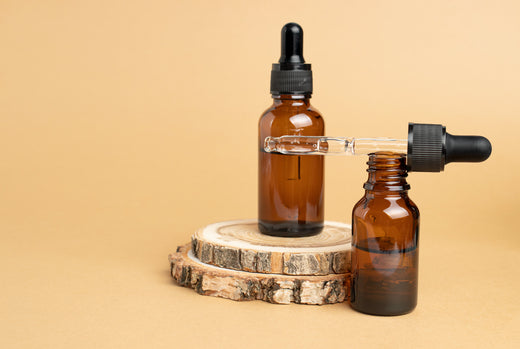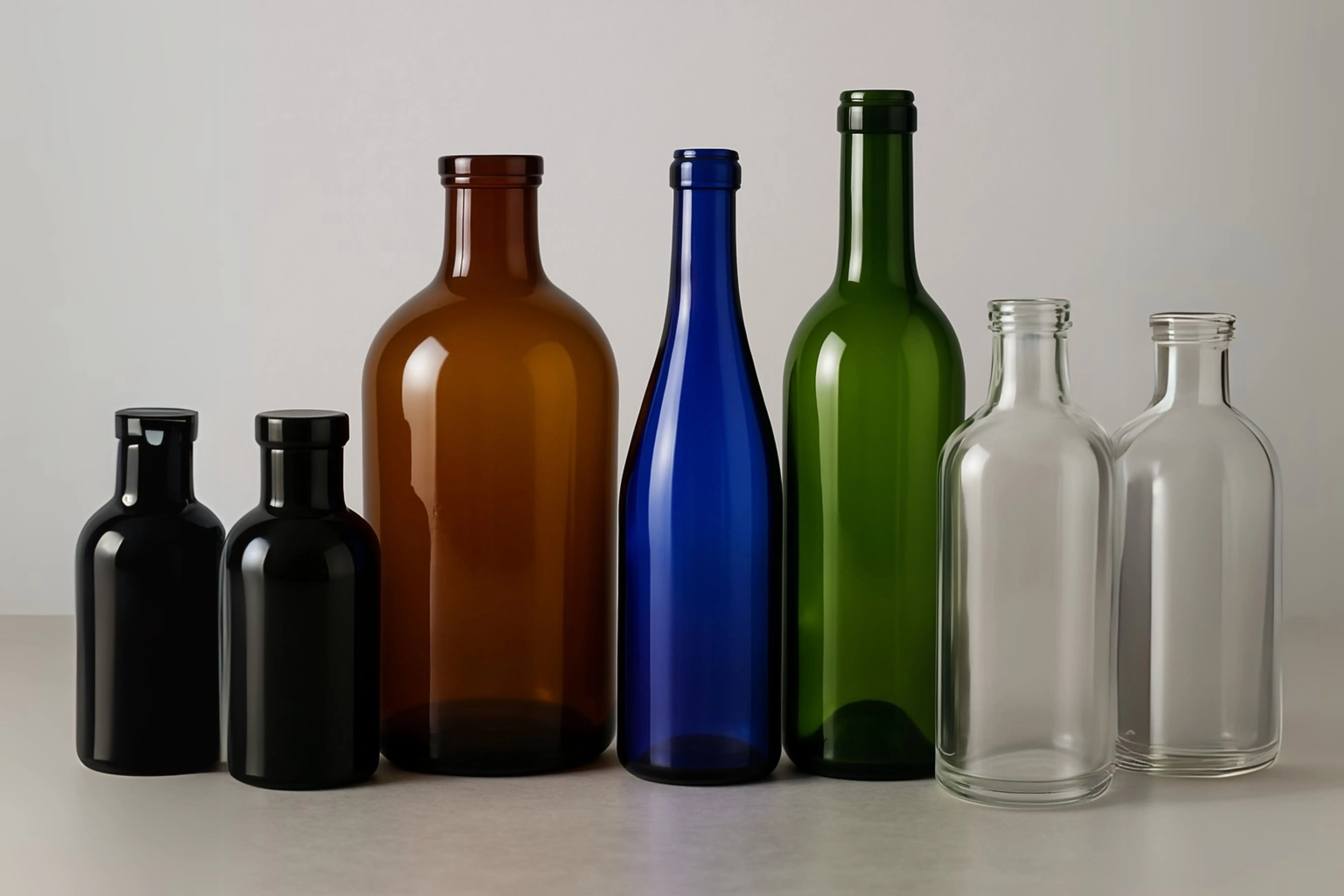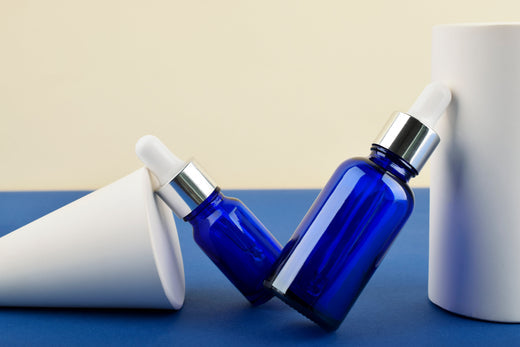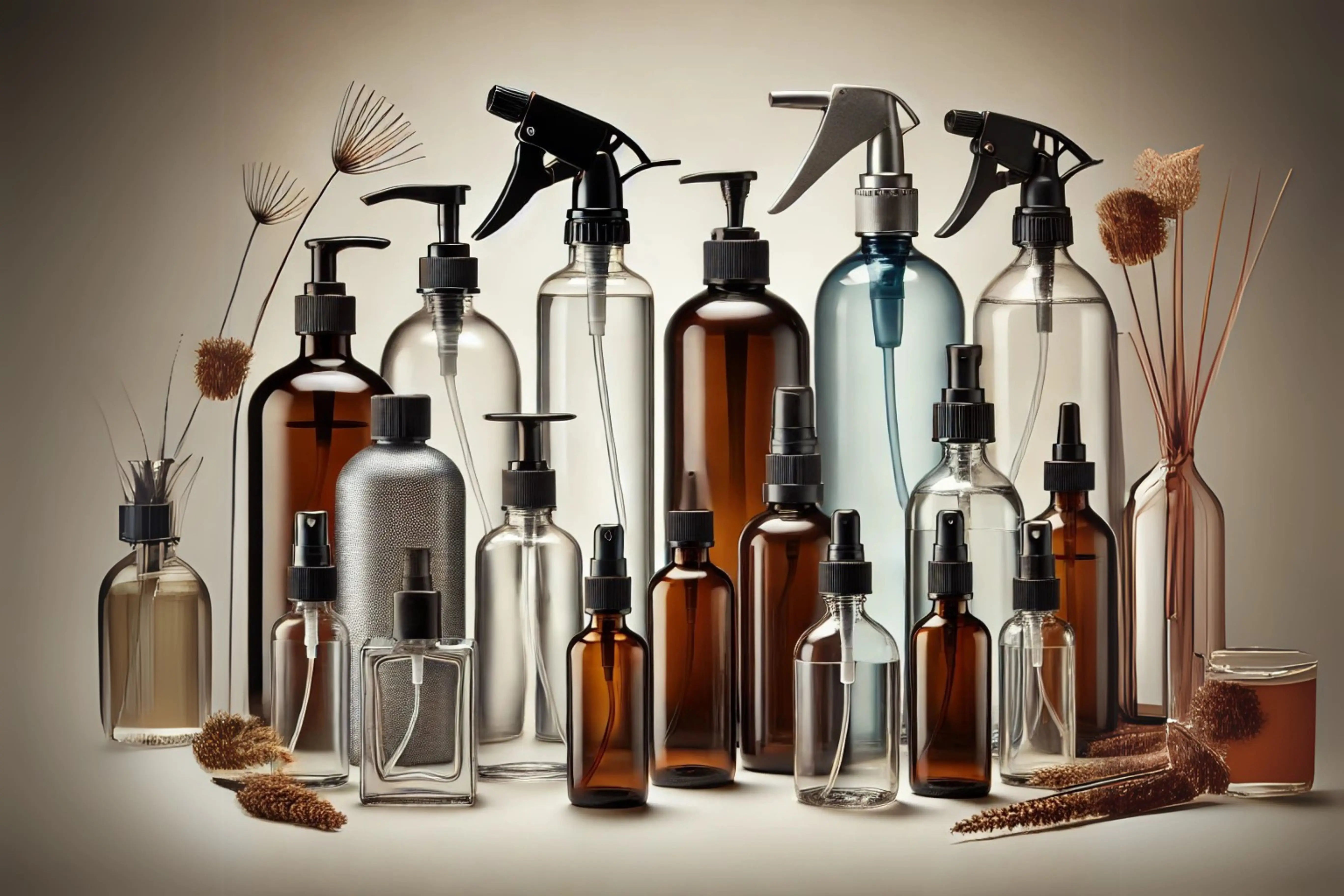Droppers are a small but mighty tool when it comes to the precise dispensing of liquids. Whether you're working in skincare, pharmaceuticals, aromatherapy, or even chemistry laboratories, understanding droppers and their uses can make a big difference in product application and formulation.
If you’re in a business that requires accurate measurements, consistent drop volumes, and control over quantities of liquids, then this guide is for you.
What Is a Dropper?
A dropper is a device used to dispense liquids by drops, allowing for exact measurements when precision matters. The standard dropper is made up of a few main components:
- A rubber bulb or hollow rubber bulb that creates suction
- A glass tube or plastic tube (also called a dropper pipe or pasteur pipette) that holds and releases the liquid
- A cap, often attached to bottles with dropper tops, to seal the container
You may also hear them referred to as eye droppers, medicine droppers, or even ear drop dispensers depending on the use case.
Types of Droppers
There are different types of droppers, each designed for specific functions and levels of precision:
1. Glass Droppers
Made from high-quality glass—often borosilicate glass for medical laboratories and high-purity applications—these are ideal for essential oils, tinctures, and other sensitive formulas. They’re reusable, non-reactive, and perfect for handling viscous liquids.
2. Plastic Droppers
These are more affordable and shatterproof, made from a flexible tube like polyethylene. While not as precise or inert as glass, plastic droppers are great for one-time use or less reactive materials.
3. Graduated Droppers
Feature marked measurements for precise measurement of liquid volumes. Useful for liquid medicines or DIY formulations.
4. Child-Resistant and Tamper-Evident Droppers
Designed for safety and product integrity—especially important when handling essential oils or pharmaceuticals.
5. Euro Droppers (Orifice Reducers)
Often confused with traditional droppers but serve a different purpose. They regulate flow from the bottle neck itself without a pipette.
Pro Tip: Know the difference between droppers and other similar tools to ensure you're choosing the right one for your application.
Common Dropper Bottle Sizes
When choosing dropper bottles, size matters. Common options include:
Each size affects how much product can be dispensed in a single use and determines the amounts of liquids retained per drop. A drop volume can vary slightly based on the liquid’s viscosity, but most droppers are designed to deliver a standard range.
If you're selling or packaging in bulk, look into black glass dropper bottles for UV protection and a sleek, premium aesthetic. These are perfect for serums and oils.
What Are Droppers Used For?
Droppers are incredibly versatile. Here's a quick breakdown of popular applications:
- Essential oils
- Serums and skincare
- Liquid medicines (like an eye dropper or medicine dropper)
- CBD oil
- Ear drops and eye drops
- DIY perfume or tinctures
- Applications in laboratories
- Chemical experiments in academic or professional lab settings
No matter the use, droppers ensure the controlled application of liquids, especially when working with small quantities of liquids or when the accuracy of pipettes is non-negotiable.
How Do Droppers Work?
The operation is simple but effective:
- Squeeze the bulb portion to expel air.
- Submerge the glass tube or plastic tube in the liquid.
- Release the bulb to suck liquid into the pipette.
- Squeeze again to release drops of liquid.
This mechanism allows for essential accuracy when working with sensitive formulas. The key is the balance between suction and controlled release—perfect for dispensing of liquids like oils or medicines.
Glass vs. Plastic Droppers: Pros and Cons
|
Feature |
Glass Droppers |
Plastic Droppers |
|---|---|---|
|
Reusability |
High |
Low |
|
Reactivity |
Non-reactive |
Can absorb chemicals |
|
Durability |
Fragile |
Durable |
|
Aesthetic |
Premium |
Basic |
|
Use in Labs |
Ideal |
Limited |
For those in the wellness or skincare industry, glass droppers (especially Black Glass options) are the go-to for premium packaging. In contrast, plastic droppers are common in bulk or disposable medical kits.
Dropper Bottles vs. Sprayers vs. Roller Bottles
Choosing the right dispensing method is about application of liquids and user experience.
- Dropper Bottles: Ideal for viscous liquids like serums and tinctures.
- Sprayers: Better for even mist application (think toners).
- Roller Bottles: Great for topical, direct-to-skin use.
Knowing your product's texture and function helps decide between these options.
Buying Droppers in Bulk or Wholesale
If you're sourcing for a business, here’s what to keep in mind:
- Choose high-quality droppers with reliable suction and leak-proof caps.
- Consider bottle neck compatibility—especially if you're purchasing dropper tops separately.
- For better branding, go with options like Black Glass Dropper bottles.
- Factor in the concern of liquid remaining in the pipette (wastage matters).
Need wholesale packaging? Check out The Bottle Depot’s collection of dropper bottles with various cap and color options for retail or production use.
Frequently Asked Questions
How much liquid does a dropper hold?
Most standard droppers hold about 1 ml, but this can vary based on pipette size and drop volume.
Can droppers be reused?
Yes, especially glass droppers—just make sure to clean and sterilize them properly.
Are droppers safe for essential oils?
Absolutely. Just use non-reactive materials like borosilicate glass for long-term storage.
How do you clean a dropper?
Disassemble and rinse with warm soapy water or use alcohol for sterilization. Let all parts dry before reuse.
Final Thoughts
Droppers may seem small, but their impact is big—especially when essential accuracy and precise measurement matter. From medicine droppers to lab pipettes, they’re used everywhere you need control over liquid volumes.
Whether you're formulating products, packaging in bulk, or experimenting in a lab, choosing the right high-quality dropper is key.
Need dependable dropper bottles for your business?
Explore wholesale glass dropper packaging at The Bottle Depot—quality you can count on.




